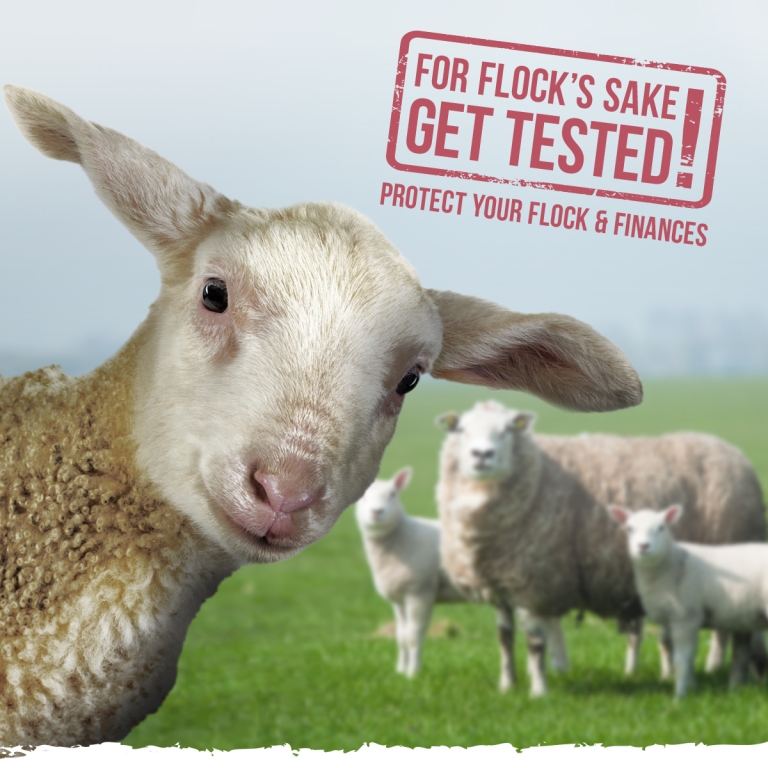
Ceva Launches Annual Assure Ewe Testing Scheme For EAE
Ceva Animal Health has launched its annual Assure Ewe diagnostic support scheme for Enzootic Abortion of ewes (EAE) for sheep farmers experiencing abortions during lambing.
EAE costs the UK sheep industry up to £20 million a year1 and remains a significant issue on sheep farms; it was one of the top three causes of ovine abortion in Great Britain in 20232. An investigation of UK flocks that had EAE over four or more years demonstrated that failure to vaccinate was a consistent feature3. Not surprisingly, vaccination for EAE falls within category one for sheep vaccination and is recommended under NOAH’s livestock vaccination guidelines4.
Ceva’s Assure Ewe subsidised testing scheme enables farmers to test for EAE if they have experienced an abortion rate of over two per cent in their flock or if two or more have aborted over two to three days, irrespective of the size of flock. The scheme is available for flocks showing late term abortion or ewes lambing at term with weakly or still born lambs. Up to six ewes can be sampled from flocks that do not vaccinate against EAE; these samples may be useful in flocks where an investigation during the outbreak was not possible, or to confirm the diagnosis in aborted ewes. Aborted ewes can be tested for Chlamydia abortus (Chlamydophila abortus), ideally from three weeks to three months after lambing. Ceva recommends that farmers record tag numbers and mark up ewes that have aborted so that they can be easily identified for screening at the end of lambing.
One of the issues that contributes to these levels of disease is the ability of the bacteria to lay latent in ewes until the next pregnancy. One infected sheep aborting, with the associated shedding of the bacteria, has the potential to infect multiple ewes that will abort at their next lambing.
Phillipa Page BVSc BSC MRCVS, veterinary advisor at NADIS and consultant sheep veterinary surgeon at Flock Health Ltd, comments: “If your farming clients are experiencing abortions in their ewes, it is advisable that they identify the cause as quickly and effectively as possible to help prevent the rest of the ewes in the flock from becoming infected and an abortion storm during future lambings. The Assure Ewe testing scheme will help farmers obtain a diagnosis to enable them to formulate a plan to help protect their flock.”
For further information on EAE, the Assure Ewe scheme or Ceva Animal Health’s Cevac Chlamydia vaccine, please contact your local Ceva Animal Health account manager or visit https://enzooticabortion.co.uk/.
References
- Milne C.E., et al. Epidemiological modelling of chlamydial abortion in sheep flocks, Veterinary Microbiology (2009), doi:10.1016/j.vetmic.2008.09.032
- https://assets.publishing.service.gov.uk/media/651d828f6a6955000d78b305/Quarterly_GB_small_ruminant_disease_surveillance_and_emerging_threats_report_April_to_June_2023.pdf
- Lima, E., Lovatt, F., Davies, P. & Kaler, J. Using lamb sales data to investigate associations between implementation of disease preventive practices and sheep flock performance. Animal 13, (2019)
- https://www.noah.co.uk/wp-content/uploads/2022/08/NOAH-Livestock-Vaccination-Guideline-August-2022.pdf
More from Ceva
- Ceva supports Tiny the cat with StreetVet donation
- Collaborative effort to strengthen Singapore’s preparedness against avian influenza
- Ease Pet Anxiety This Fireworks Season with Ceva's Vet-Approved Solutions
- Ceva and International Cat Care launch season 2 of cat handling training videos
- Ceva launches service to highlight the cost of infertility linked to Q fever

 2 years ago
2 years ago  1601 views
1601 views
